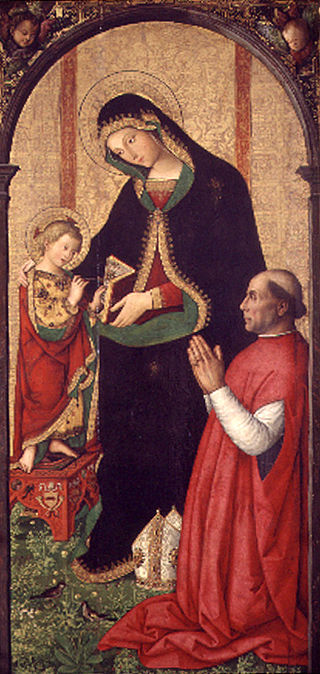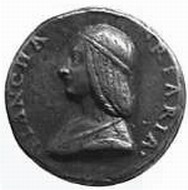Biography
Known as Valentino's executioner, he and Cesare Borgia were thought to be close friends since childhood, going on to accompany one another during their studies at the University of Pisa.
On 23 December 1499, a Don Michele de Corella and the Bishop of Trani were left in Forlì as lieutenants in Cesare's army around the time of the seizure of Forlì.
In March 1502, Corella was left by Cesare as his governor in Piombino. Corella was then dispatched to Pesaro with Ramiro de Lorqua under the order of Cesare Borgia in October 1502. With his lances, on his way to Pesaro, Corella heard of the insurgence of the rebelling Fossombrone and Pergola, and ventured to those towns to sack them pitilessly as punishment.
Niccolò Machiavelli described a conversation Corella had with Oliverotto da Fermo on 31 December 1502: "Therefore Don Michele rode off and joined Oliverotto, telling him that it was not right to keep his men out of their quarters, because these might be taken up by the men of the duke; and he advised him to send them at once to their quarters and to come himself to meet the duke". [5]
On the night of 31 December 1502, Vitellozzo Vitelli and Oliverotto da Fermo, who had been arrested under Cesare's command, were strangled to death, supposedly by Corella (hinted in Machiavelli's letter of 31 December).
In November 1503, Corella and della Volpe went north with seven hundred horsemen to support Cesare's Romagnuoli but the group were defeated in Tuscany by the army of Gianpaolo Baglioni. After Corella and della Volpe were taken prisoner in 1503, Corella was first imprisoned in Florence and then in Rome where he was questioned and tortured. However, he refused to reveal the many secrets he knew about the Borgias.
He was liberated by Pope Julius II in 1505, and thanks to Machiavelli's mediation, was hired by Florence as bargello. He held this position for two years, until 1507.
Corella was killed in Milan in 1508 by fellow countrymen, although the instigator is unknown.
The Italian-English novelist and historian Rafael Sabatini described Micheletto Corella as follows: "Corella was a captain of foot, a soldier of fortune, who from the earliest days of Cesare's military career had followed the duke's fortunes – the very man who is alleged to have strangled Alfonso of Aragon by Cesare's orders. He is generally assumed to have been a Spaniard, and is commonly designated as Micheletto, or Don Miguel; but Alvisi supposes him, from his name of Corella, to have been a Venetian, and he tells us that by his fidelity to Cesare and the implicit manner in which he executed his master's orders, he earned – as is notorious – considerable hatred".

Cesare Borgia was a Spanish-Italian cardinal and condottiero, an illegitimate son of Pope Alexander VI and member of the Valencian (Spanish-Aragonese) House of Borgia. His fight for power was a major inspiration for The Prince by Niccolò Machiavelli.

Niccolò di Bernardo dei Machiavelli was a Florentine diplomat, author, philosopher and historian who lived during the Renaissance. He is best known for his political treatise The Prince, written around 1513 but not published until 1532, five years after his death. He has often been called the father of modern political philosophy and political science.
Year 1502 (MDII) was a common year starting on Saturday of the Julian calendar.
This article contains information about the literary events and publications of 1503.

Condottieri were Italian captains in command of mercenary companies during the Middle Ages and of multinational armies during the early modern period. They notably served popes and other European monarchs during the Italian Wars of the Renaissance and the European Wars of Religion. Notable condottieri include Prospero Colonna, Giovanni dalle Bande Nere, Cesare Borgia, the Marquis of Pescara, Andrea Doria, and the Duke of Parma.

The House of Borgia was a Spanish noble family, which rose to prominence during the Italian Renaissance. They were from Xàtiva, Kingdom of Valencia, the surname being a toponymic from the town of Borja, then in the Crown of Aragon, in Spain.

Vitellozzo Vitelli was an Italian condottiero. He was lord of Montone, Città di Castello, Monterchi and Anghiari.
Giovanni Borgia, known as the Infans Romanus, was born into the House of Borgia in secret and is of unclear parentage. Speculations of the child's parentage involve either Lucrezia Borgia with her alleged lover, Perotto Calderon or Cesare Borgia, or Pope Alexander VI as his father. Cesare Borgia's biographer Rafael Sabatini says that the truth is fairly clear: Alexander fathered the child with an unknown Roman woman.

Francisco de Borja y Navarro de Alpicat was a Spanish cardinal, and the seventh of ten cardinal-nephews created by Pope Alexander VI.

Oliverotto Euffreducci, known as Oliverotto of Fermo, was an Italian condottiero and lord of Fermo during the pontificate of Alexander VI. His career is described in Niccolò Machiavelli's Il Principe.

Bianca Riario was an Italian noblewoman and regent, Marchioness of San Secondo by marriage to Troilo I de' Rossi, and regent of the marquisate and county of San Secondo for her son Pier Maria during his minority between 1521 and 1522. She was the eldest child and only daughter of Caterina Sforza by the latter's first husband, Girolamo Riario, a nephew of Pope Sixtus IV.
On the method of dealing with the Rebellious Peoples of Valdichiana is a 1503 work by Niccolò Machiavelli.
A Description of the methods adopted by the Duke Valentino when murdering Vitellozzo Vitelli, Oliverotto da Fermo, the Signor Pagolo, and the Duke di Gravina Orsini often abbreviated as The Description for reasons of brevity, is a work by Italian Renaissance political scientist and historian Niccolò Machiavelli. The work describes the methods used by Cesare Borgia to capture and murder members of the Orsini family, a princely family of Renaissance Rome. Both Vitellozzo Vitelli and Oliverotto da Fermo were strangled on the night of their capture on 31 December 1502.

This timeline lists important events relevant to the life of the Italian diplomat, writer and political philosopher Niccolò di Bernardo dei Machiavelli (1469–1527).

Ezio Auditore da Firenze is a character in the video game series Assassin's Creed, an Italian Master Assassin who serves as the protagonist of the series' games set during the Italian Renaissance. His life and career as an Assassin are chronicled in Assassin's Creed II, II: Discovery, Brotherhood (2010), and Revelations (2011), as well as the short films Assassin's Creed: Lineage (2009), Ascendance (2010), and Embers (2011) and various spin-off media of the franchise. In 2016, all three major games featuring Ezio, as well as Lineage and Embers, were re-released as an enhanced bundle titled Assassin's Creed: The Ezio Collection. Throughout most of his appearances, the character has been voiced by American actor Roger Craig Smith, while Canadian actor Devon Bostick portrayed him in live-action in Lineage.

The Borgias is a historical drama television series created by Neil Jordan; it debuted in 2011 and was canceled in 2013.

Paolo Vitelli was an Italian knight and condottiero as well as lord of Montone. He was born in Città di Castello, which had been captured by his father, Niccolò Vitelli. He was the brother of Vitellozo and Chiappino, both condottieri. He worked as a mercenary for the republic of Florence, where he was later suspected of treachery and executed. This led his brother Vitellozzo to repeatedly assail Tuscan properties.
Fabio Orsini was an Italian condottiero and lord of Mentana. He was son of Paolo Orsini, who was murdered in 1503 by Cesare Borgia.
Paolo Orsini was an Italian condottiero in the service of the Papal States, Ferdinand of Aragon and the Republic of Florence. He was marquess of Atripalda and lord of Mentana, Palombara Sabina and Selci.












